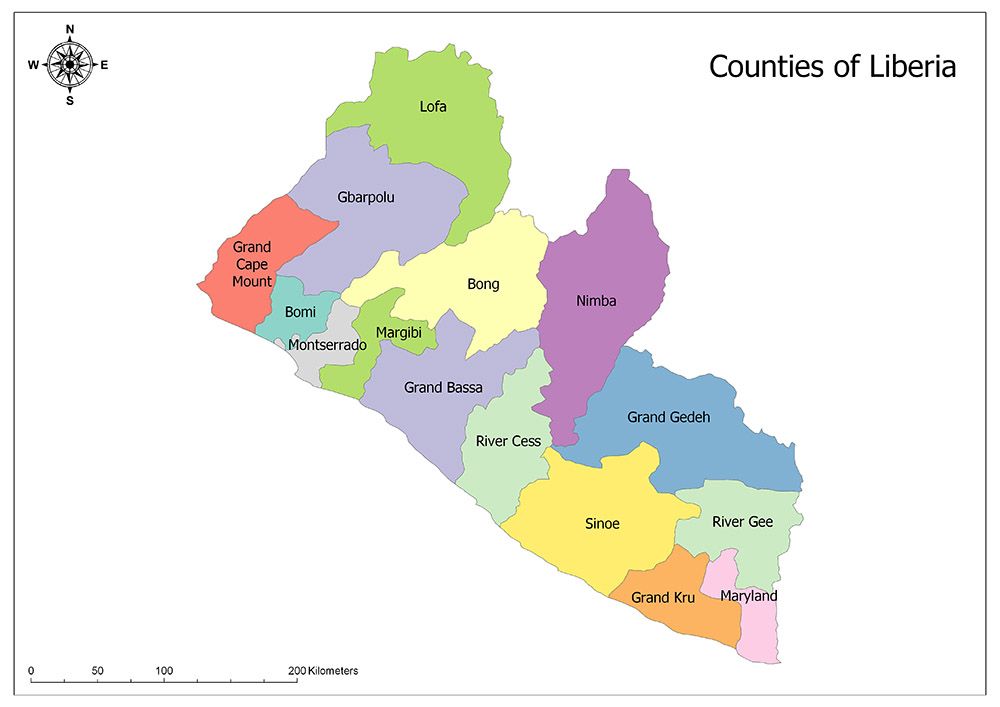Unfortunately, ritual murder are no exception in Africa’s oldest republic. Experience teaches us that ritualistic murders in Liberia are on the increase during elections campaigns and when important political appointments are expected – which though does not exclude other circumstances explaining a rise in ritual killings. In the past four to five years, ritual murders have been reported in at least seven of Liberia’s fifteen counties including Montserrado, Bomi, Bong, Nimba, Grand Bassa, Grand Kru and Maryland counties. However, the absence of discoveries of mutilated bodies or reports of ritual murders should not be interpreted as the absence of these criminal and outdated superstitious practices. By definition, occult practices and ritualistic murders take place in secret.
In the article below reference is made to a prominent person who held a very senior position in the Weah Administration and who allegedly is said to be implied in the reported case of two young boys who were murdered for ritual activities. It should be underlined here that this is not the position of the webmaster of this site (FVDK). Moreover, I uphold the principle that no one is guilty unless found guilty by an independent judge after an impartial, public trial.
The original article shown here includes a number of links referring to other, previously published articles containing relevant and related information. I have decided to also include these articles in this posting in order to avoid the (future) situation that the original articles are no longer available or accessible after they have lost been lost in cyberspace, unfortunately not an uncommon phenomenon.
All articles together sketch a reality in Liberia which is rarely shown but which exists. No use to deny or to ignore it. A reality of traditional practices and beliefs, a reality of cultural history including respect for the ancestors. Notwithstanding the foregoing, it goes without saying that a ‘war on ignorance and superstition’ is a must in Africa’s oldest republic, which was created in 1847 by African Americans.
Finally, my June 25 posting, Liberia: Traditional devils arrest six men for allegedly killing two children for rituals, refers to the same case.
(webmaster FVDK)
Liberia: In Nimba, Tribal Devils Become Detectives
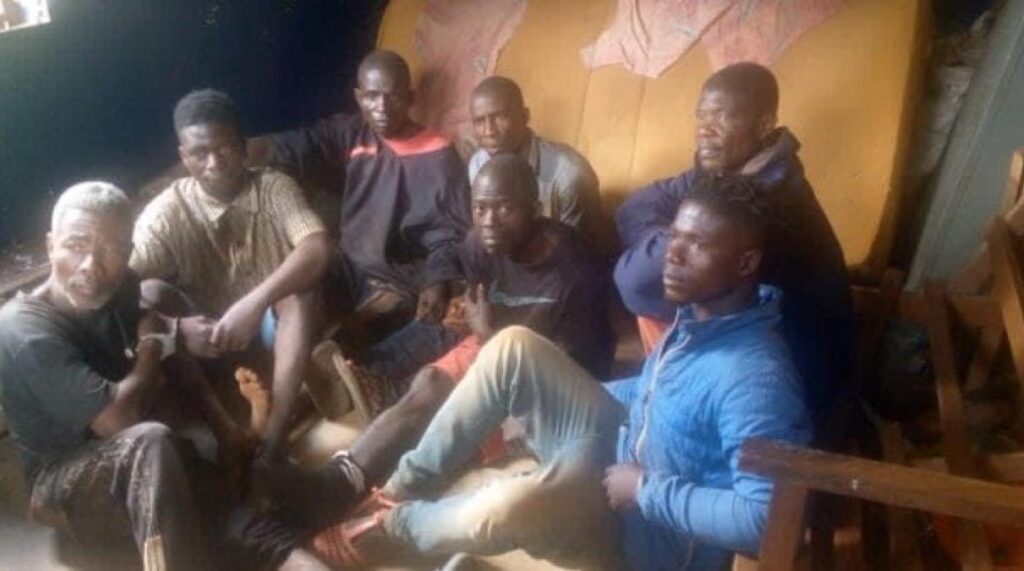
Published: October 4, 2022
By: Ishmael F. Menkor – Daily Observer, Liberia
…. When the National Police could not solve a double homicide in their rural community, the people of Beo Bonlay Town, Nimba County, employed the most unconventional means.
It was a breakthrough in a double-murder case that would have been written off as an anomaly except that, in the context of numerous unsolved gruesome murders across Liberia in recent years, police investigations have consistently come up with the same results as they did in this one — “no evidence” or “no foul play” — case closed.
But the people of Beo Bonlay Town, District # 6, Nimba County, would not take ‘no’ for an answer. In an unprecedented move, they summoned their tribal devils to confirm their hunch and solve what they believed were the murders of two innocent boys who had gone missing and later turned up dead in separate locations.
It all started on June 9, when the two boys, Handsome-boy Mahn, 9 and Zayglay David, 4, went missing after they returned from the farm in the afternoon.
Hours after their disappearance, the community launched an immediate manhunt for the children. Unfortunately they were found dead with their bodies dumped in two separate wells about 20 minutes apart.
The deaths of the two children sent shockwaves of fear and concern among citizens of the district, especially when the first batch of investigators from the Tappita Police Detail, led by the detail commander and the 15-man coroner jury, ruled that there was no foul-play.
But reports reaching the Daily Observer said an initial examination of the corpses showed that the boys’ necks had been broken. There was also an alleged ‘erasing mark’ on the coroner jury’s report, but this is yet to be verified.
“The devil”, it is said, “is in the details.” Or is it?
Unconvinced by the “no foul-play” conclusions of the coroner jury and the police, the citizens this time brought out their tribal devils to search for the perpetrators. It was during the search that seven men were arrested on July 16, and turned over to police in Sanniquellie for interrogation.
Even after the tribal devils arrested the suspects, the police (again) claimed that due to lack of scientific evidence, they could not charge the alleged perpetrators. This caused the case to drag on until September, when the Crime Services Department (CSD) sent another batch of officers, backed by former Ganta Police Commander, Adolphus Zorh, to conduct the investigation.
Commander Zorh’s team was able to establish the facts and determine that two of the seven men be released because police could not find any evidence to charge them. The other five men arrested by tribal devils were charged by police and sent to court.
According to the CSD, Sanniquellie Detachment, Liberia National Police, the five men were charged with “murder, criminal facilitation and criminal conspiracy” and sent to the Sanniquellie Magisterial Court for preliminary investigation.
Initial confessions
Following their arrest by the tribal devils in the beginning, one of the suspects, Prince Karney, age 41, immediately confessed that they were given the amount of US$1,200 for the murderous operation.
He said he then hired one Zayee Winpea, 43, to kill the two children for the amount of US$300 and gave US$150 to Nenkerwon Mahn, an 18-year-old uncle of the kids, to serve as a watchman while the killing was carried out.
The oldest among the suspects, 45-year-old Morris Gonwon, was also promised US$150 for his role in the killing, which was not spelled out. Two of the seven suspects, George Sumah and Lawrence Sumah, were hired to take the victims’ blood to Monrovia, while another suspect, Harrison Sumah, was the one who lured the kids with candy before grabbing them.
During the CSD final investigation, Morris Gonwon and George Sumah were released on grounds that there was not enough evidence to prosecute them. The five persons charged and sent to court are Prince Karney, Harrison Sumah, Lawrence Freeman, Nenkerwon Mahn, and Zayee Winpea.
Prince Karney is said to be the Youth leader of Boe Bonlay and coordinator for the “Friends of Jackson Paye”, a political canvassing group. Jackson Paye is a former Deputy Minister of National Defense who has expressed his desire to contest for the Nimba County District #6 representative seat in 2023.
The murder suspects alleged that the former deputy minister facilitated the killing by giving them the US$1,200 for the operation — to get the children’s blood, allegedly for ritual purposes.
However, Jackson Paye on Truth FM on Thursday, June 22, 2022 denied having any connection to the killings, describing the acts as barbaric, inhumane and uncivilized. He explained that the “Friends of Paye” want the law to take its course, ensuring the alleged perpetrators face the full weight of the law.
Traditional justice
It is not clear whether the tribal devils ever got to the heart of the matter to determine exactly who ordered the men to kill the two children. We may never know.
However, in cases where communities in Liberia have invoked tribal justice systems to supersede statutory law — especially in the absence of forensic evidence — statutory systems tend to give way. Especially in rural communities, law enforcement personnel dare not interfere with matters involving tribal devils.
In the recent past, such has been the case in instances where communities have risen up to express their dissatisfaction when their expectations of government have been egregiously dashed.
In November 2021, Lofa County, a powerful sect of the Poro Society, the Ngaimu, staged a protest, blocking the bridge that connects Bong and Lofa counties, to oppose the delay by the Supreme Court to decide whether Senator-elect Brownie Samukai should take his Lofa County senatorial seat, which had been unoccupied due to a disability imposed on him by the Court for nearly a year.
In response, the Deputy Inspector General for Operations of the Liberia National Police (LNP), Marvin Sackor, threatened necessary actions against any country devil protest. Yet, no move was made on the part of the police.
A month earlier, October 18, 2021, members of the secret Poro Society shut down ArcelorMittal Liberia’s operations in Yekepa, Nimba County for more than 48 hours at both Mount Tokadeh and Mount Gangra, over claims that AML failed to live up to its previous amended mineral development agreement (MDA) with the government.
For ArcelorMittal Liberia, this was not the first time. Barely six weeks earlier, on September 27, 2021, the Poro masters temporarily besieged the operation areas of AML, halting operations for 8 hours.
But tribal or traditional devils are only one extreme of traditional justice systems. Liberia recognizes a whole regime of what it calls “trial by ordeal”, a method by which suspects are made to undergo an often dangerous test to determine their innocence or guilt. However, while the United Nations has called on Liberia to abolish all forms of trial by ordeal, only the most harmful aspects of this system of justice have been abolished.
Source: Liberia: In Nimba, Tribal Devils Become Detectives
Also:
Lofa County locked down by “Country Devil”
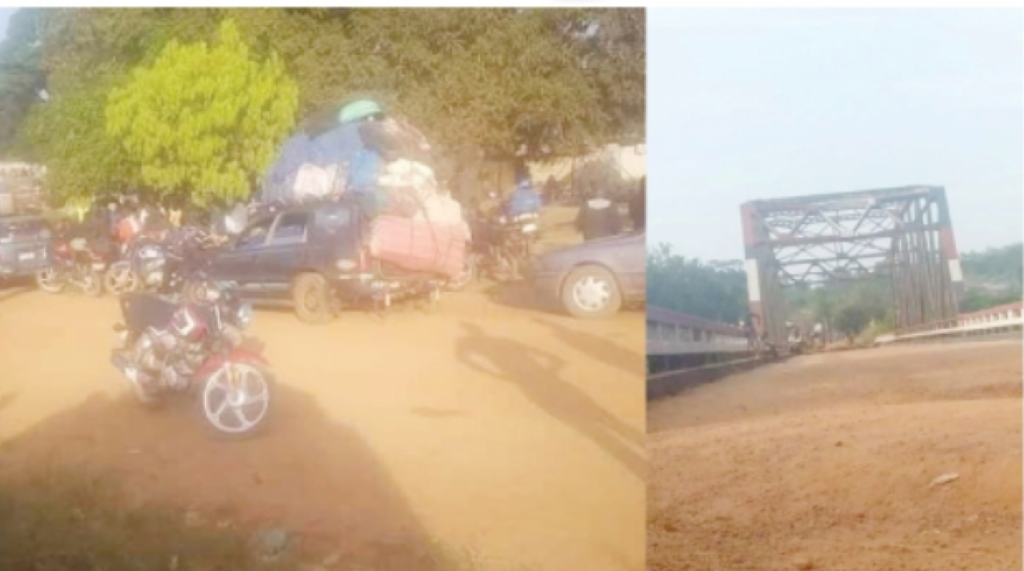
Published: November 26, 2021
By: Marcus Malaya – Daily Observer, Liberia
A protest against the Supreme Court of Liberia has resulted in the shut-down of the border crossing point between Bong and Lofa Counties – leaving several business people stranded along the way.
The protest, which is being led by the powerful sect of the Poro Society, the Ngaimu, is intended to oppose the delay by the Supreme Court to decide the fate of the Lofa County senatorial seat, which has been unoccupied due to the disability imposed on Senator-elect Brownie Samukai by the Court.
The protesters, who are all men and led by the fearsome, Ngaimu – the traditional name of head of the Poro Society in that part of Liberia – have blocked the road, halting the movement of people and goods between the two counties, while those who are not members of the society have remained indoors since the morning hours of Thursday, November 25.
“Ngaimu has set a roadblock in the village of Beyan Town on the Lofa side of the border. The action of Ngaimu is in protest of the Court and the Government of Liberia’s failure to announce the Senate seat of Lofa County vacant since the Senator-elect Samukai has not been able to take the seat due to his disability by the Supreme Court,” disclosed eyewitnesses at the scene of the protest.
The protesters, however, vowed to keep the road closed until the Court ruled on the matter – deciding if the senate will be declared vacant or not. And security personnel, some of whom are not members of the society, have also been dared to remove the roadblock, setup by Ngaimu.
The fear of the Ngaimu has also prevented the women from going out to tend to their farms, since it is forbidden for a woman to lay eyes on it – as doing so comes with consequences, traditionalists claim.
The eyewitness accounts revealed that there are more than three “Ngaimus” currently at the St. Paul Bridge in Beyan Town and there are more “Ngaimus” coming to join the others currently at the bridge.
Supreme Court
The Supreme Court months ago denied Samukai’s request for the high court to reverse the judgment of the Criminal Court ‘C’ at the Temple of Justice, which found him and two others guilty of misapplying over US$1 million in pension funds stored up in a bank account for members of the Armed Forces of Liberia (AFL) when he served as Defense Minister.
The disability includes the payment of US$173,276.05 as some portion of his share of money illegally withdrawn from the Armed Forces of Liberia (AFL) pension funds, for which he was found guilty of misapplication of entrusted property, theft of property, and other criminal offenses by Criminal Court ‘C’ with such ruling confirmed by the Supreme.
While Samukai made a payment of US$173,276.05, his two deputies Joseph F. Johnson, former Deputy Minister for Administration, and J. Nyumah Dorkor, former Comptroller, did not despite being found guilty jointly.
Samukai, together with Johnson and Dorkor, were to pay the amount of US$573,832.68 within a six-month period to avoid imprisonment, according to the Supreme Court mandate to the Criminal Court ‘C’. It was out of the amount of US$573,832.68 that Samukai alone managed to pay the US$173,276.05, which his followers believed is the portion of his share of the money.
The Court then ordered the National Election Commission not to certify him until the disability imposed on him as a result of his conviction for felony is removed. The Court argued that from a review of the records, Samukai and his two deputies were jointly charged with the commission of the crimes for which they were brought down guilty.
The Supreme Court added that the restitution is a part of the sentence, as such; Samukai and the two others are to restitute the amount withdrawn from the AFL Pension Account without the permission or authorization of the soldiers.
History of the case
Samukai, then former Defense Minister, together with Johnson and Dorkor without any authorization, withdrew the amount US$1,147,665.35 from the pension fund belonging to soldiers of the Armed Forces of Liberia (AFL).
The three men were later declared guilty of multiple crimes including misuse of private funds and subsequently sentenced to two years in prison each, and also ordered to restitute the money within a year by the Criminal Court ‘C’. The judgment was later modified by the Supreme Court after Samukai and the others appealed against it to the high court.
In the modification, the Supreme Court said it was suspending their prison term on grounds that, if they were to pay fifty percent (50) of the judgment amount of the US$1,147,665.35, which is $573,832.68, within six months period, which expired by August, 26, they would avoid Imprisonment.
Source: Liberia: Lofa Locked Down by “Country Devil”
Also:
Liberia National Police warns against ‘Country Devil’ protests
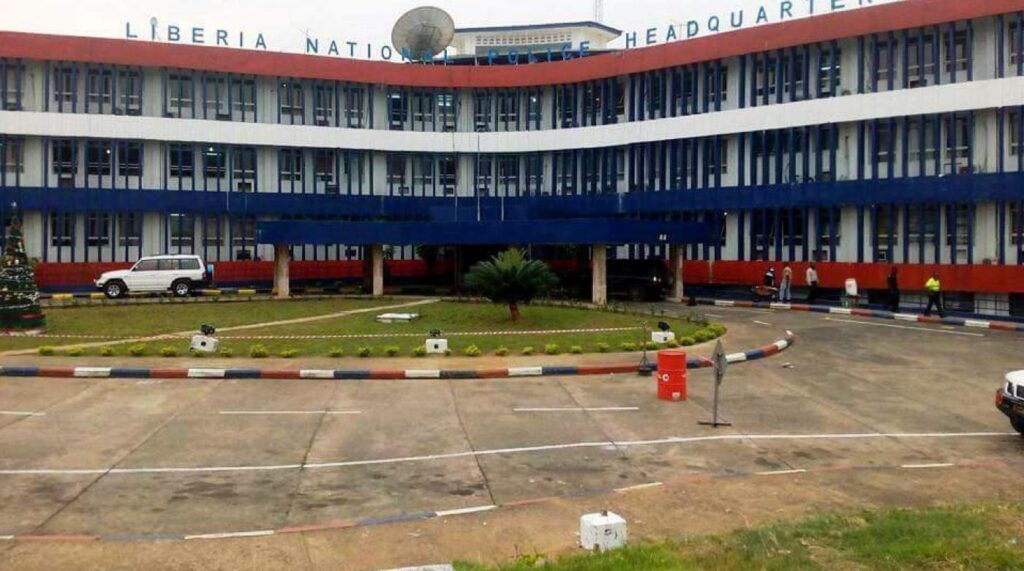
Published: December 10, 2021
By: Tina S. Mehnpaine – Daily Observer, Liberia
The Deputy Inspector General for Operations of the Liberia National Police (LNP), Marvin Sackor has threatened necessary actions against any country devil protest.
He said if people are disenchanted, they should make use of the legal means rather than staying in protest to undermine the peace of the country.
“It is unfortunate and unfair that some of our people are using the tradition to undermine the peace and security of this country. Let me say this, article 17 of our constitution gives citizens the right to peacefully assemble and petition their government. So if you, as a citizen of this country, will use whatever political means or any disenchantment to undermine the peace of this country, I can assure the public that the Liberia National Police will use whatever force necessary to contain that situation,” he warned.
Since the staging of a protest by members of the poro society in Lofa county to call on the attention of the Supreme Court to decide the fate of Senator-elect Brownie Samukai, traditional leaders have been accused of allowing politicians to influence them.
The group of men led by their powerful poro master, Ngainmu, on November 30, blocked the entrance of the St. Paul bridge that connects Bomi and Lofa counties to pressure the court to reopen the case of Senator-elect Samukai.
Sackor added that if traditional people have any disenchantment in the country, they should use legal means to get redress instead of blocking roads to cause chaos among citizens.
“There is no exception to the rule of law; our traditional people need to understand that this country is governed by law,” Sackor declared. “ Anyone – I am very clear here – that thinks that they have any other power to undermine the Constitution, trust me, the Liberia National Police will use every legal means to uphold the Constitution and the rule of law. So, I am appealing to our traditional people in Lofa. Handle your situation through the legal means. Any attempt to block the St. Paul Bridge, we are under obligation to make sure that the Constitution is intact.”
Nathaniel F. McGill, Minister of State, also accused politicians of masterminding the protest and branding it as a disgrace to Liberian culture.
“I was watching Facebook live and I saw a country devil protesting. This has never happened in our country, it is a shame and whoever did that must be disgraceful,” said Minister McGill.
Addressing the Ministry of information, Cultural Affairs and Tourism (MICAT) regular press briefing in Monrovia, Sackor reminded traditional leaders that they are not above the law and, therefore, any attempt to block roads, the police will not hesitate to act.
Meanwhile, the deputy inspector general has revealed that due to the increasing wave of criminal activities in the country, there will be restrictions imposed on motorcyclists.
He said a police investigation has shown that criminals are transported by motorcyclists so the Police have commenced the implementation of the no-go-zones for motorcyclists ahead of the festive season in Liberia, to avoid the transportation of criminals.
Source: Liberia: LNP Warns Against ‘Country Devil’ Protests
Also:
Poro Society halts ArcelorMittal’s operations in Yekepa

Published: October 19, 2021
By: Ishmael F. Menkor – Daily Observer, Liberia
Steel giant ArcelorMittal was forced yesterday to shut down its Yekepa operations after members of the secret poro society made an unannounced visit to protest against alleged neglect by the company.
The strike action, which is highly unprecedented for members of the highly respected Poro Society in Liberia, comes amid rising tension in the company’s operating areas weeks after it had signed an amended mineral development agreement with the government of Liberia.
The agreement, which now awaits ratification from lawmakers, has been met with rejection by mines communities in Nimba County, where the company operates, over claims that AML failed to live up to its previous amended mineral development agreement (MDA) with the government.
Poro Society members, led by the Poro Master, shut down AML operations for more than 48 hours at both Mount Tokadeh and Mount Gangra and might likely last for 14 days, according to an insider close to the Poro masters.
The protest, which is the second in a month, is happening as county officials remain mute on the matter while they negotiate behind closed doors.
However, an elderly resident of one of mine communities has disclosed that the company, through its’ Community liaison manager, has begun negotiating with society members to cancel their protest and meet on the round table to discuss issues relating to their concerns.
In a statement, the AML confirmed the incident, saying, “on early Saturday morning, October 16, 2021, some individuals wearing ceremonial traditional costumes blocked the main access road to the mining site of ArcelorMittal Liberia in Yekepa, disrupting business operations of the company.”
“As a company that prioritizes safety and security, ArcelorMittal Liberia warns of the associated risks of unauthorized entry of individuals into an industrial environment and condemns such illegal action, said the statement from AML. “AML reaffirms its commitment to community engagement on issues around its operations as a means of finding a common ground.”
Meanwhile, AML said while they respect and continue to support traditional and cultural activities especially in their operational areas, they disagreed with disruptions and acts aimed at causing fear among its workforce are unwarranted and undermine close working relations.
On September 27, 2021 the Poro masters temporarily sieged the operation areas of AML, halting operation of 8 hours.
There has been tension in Nimba County since the Government and AML reached a new Mineral Development Agreement to extend the operation to 2036, where AML stands to invest about UD$ 800 million.
The deal has so far been rejected by mining communities due to claims of past abandonment and negligence of previous MDA.
Source: Poro Society Masters Halt AML Operations in Yekepa
Also:
The following article was originally published on November 1, 2007. It contains highly recommended reading for the readers of this site. It was decided to include it in this posting for two reasons. First, it was originally included in the Daily Observer article on the two slain boys in Nimba County (on top) and secondly, because it contains relevant background information on traditional beliefs and practices which still exist in Liberia despite being outlawed for reasons which will be clear after having read the article.
Liberia: Trial by ordeal makes the guilty burn but “undermines justice”
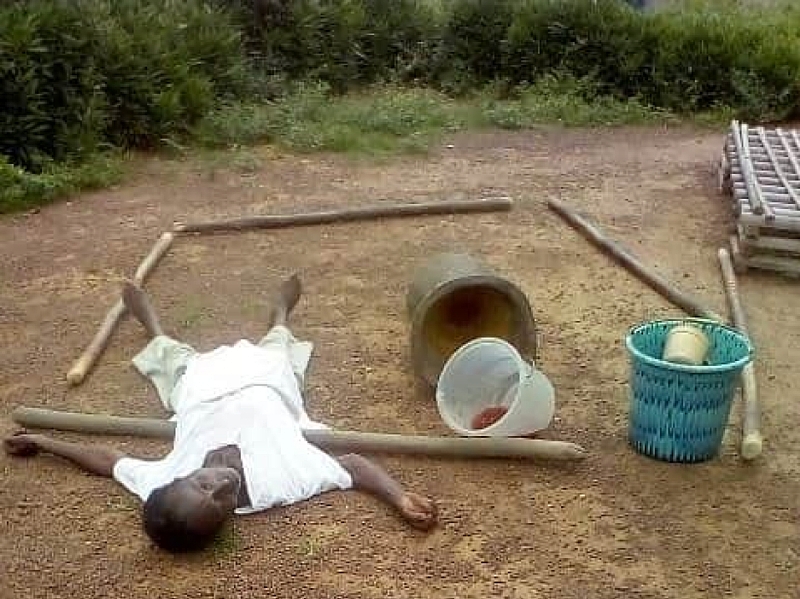
Igwe’s article serves as illustration and is not related to the OCHA article below.
Published: November 1, 2007
By: OCHA Services – Relief Web
MONROVIA, 1 November 2007 (IRIN)
- About 50 people in the village of Klay, northwestern Liberia, recently gathered to watch a man apply red-hot metal to the limbs of four youths accused of robbery.
The man dipped a machete in a concoction of water, palm oil and kola nuts, held it in fire for several minutes, and then placed it on the right legs of the four suspects. None of the youths – ages 16 to 26 – appeared to flinch. They were deemed not guilty.
This practice known as ‘sassywood’ is banned under national law, but is still regarded as a legitimate form of justice by many Liberians. A suspect is subjected to intense pain and judged on his or her reaction – if the hot metal burns the person’s leg, he or she is found guilty.
The UN has repeatedly warned that the practice is undermining efforts to improve human rights in Liberia as the country attempts to recover from 14 years of war.
Many legal specialists and human rights activists say relying on customs such as trial by ordeal – often harmful and even deadly – is down to the decrepit state of Liberia’s judicial system. And many say not enough is being done to restore the sector, left in tatters by the war.
Four years after the fighting ended, progress in rebuilding the judicial and corrections system is “very slow”, according to an August report by the UN Security Council. “The judicial system is constrained by limited infrastructure, shortage of qualified personnel, lack of capacity to process cases, poor management and lack of the necessary will to institute reforms.” The report said most people do not have access to legal counsel.
Legal advisers in Liberia say the absence of functioning courts in most rural areas is due in large part to lawyers’ reluctance to take judgeships there, as well as the lack of infrastructure for courts.
In the central Liberian town of Gbarnga in Bong County, 150km north of the capital Monrovia, residents told IRIN that trial by ordeal is the only means to adjudicate alleged crimes.
“If somebody is accused of stealing money, clothes, jewellery, food or other items, the best [way] to know who committed the act is to administer sassywood, which is fast – it takes less than 30 minutes to know who did the act,” Gbarnga resident Johnny Bono said.
Users of sassywood believe the person administering it and the instruments used have mystical powers. Practitioners are paid in money or goods – up to 2000 Liberian dollars (US$32) per ‘trial’ in the capital and about a third of that in rural areas. Sometimes payment is kola nuts and a pure-white chicken.
According to a rights activist in Nimba County, the problem is that many people will submit to sassywood because they do not know it has been outlawed.
“Sassywood is very common here and most people believe that it is the only means of knowing a guilty person,” said Dualo Lor of the church-based NGO Equip-Liberia in Nimba, 300km from Monrovia. “They are not even aware the practice is outlawed.”
He group recently prevented the application of sassywood on a 32-year-old man accused of theft. “We have been trying very hard [to educate] the people about the danger of sassywood, but they just have not stopped it.”
Some legal experts say it will be tough to stop if citizens do not feel they have a reliable justice system to take its place.
“The trial by ordeal in most parts of the country clearly shows that most people do not have confidence in the court system,” Anthony Valcke, Liberia country director of the American Bar Association in Africa, told IRIN. “If people had such confidence, they would not resort to trial by ordeal.”
Tradition
“No amount of laws or government order can stop sassywood,” Yerkula Zaizay, a resident of Gbarnga, told IRIN. “It is a tradition that our forefathers left with us. This is better than going to court. My late grandfather taught me how to apply sassywood and it is part of my culture so it cannot be easily stopped.”
Gbarnga resident Bono said, “We cannot waste our time going to court. The sassywood is our courtroom. This is what our forefathers have been practising in the past and it has been working.”
Lawyer Augustine Toe, head of the Justice and Peace Commission, a Catholic human rights group, said: “Sassywood undermines the justice system of this country and the rights of an accused are not protected. Our constitution provides that anyone is presumed innocent until proven guilty by a [court of law].”
Liberia’s chief prosecutor, Tiawon Gongloe, told IRIN he had instructed all county prosecuting officers to arrest anyone carrying out trial by ordeal.
“We are aware sassywood is going on and this act is not only unlawful, but unconstitutional,” he said, noting that 12 people were arrested earlier this year in southeastern Liberia for having administered sassywood.
UN independent human rights expert, Charlotte Abaka, said the government had to do more. “The Liberian government should take concrete steps to enforce the ban on trial by ordeal,” she said, calling the practice a “grave” breach of human rights.
ak/np/mw
Source: Liberia: Trial by ordeal makes the guilty burn but “undermines justice”
